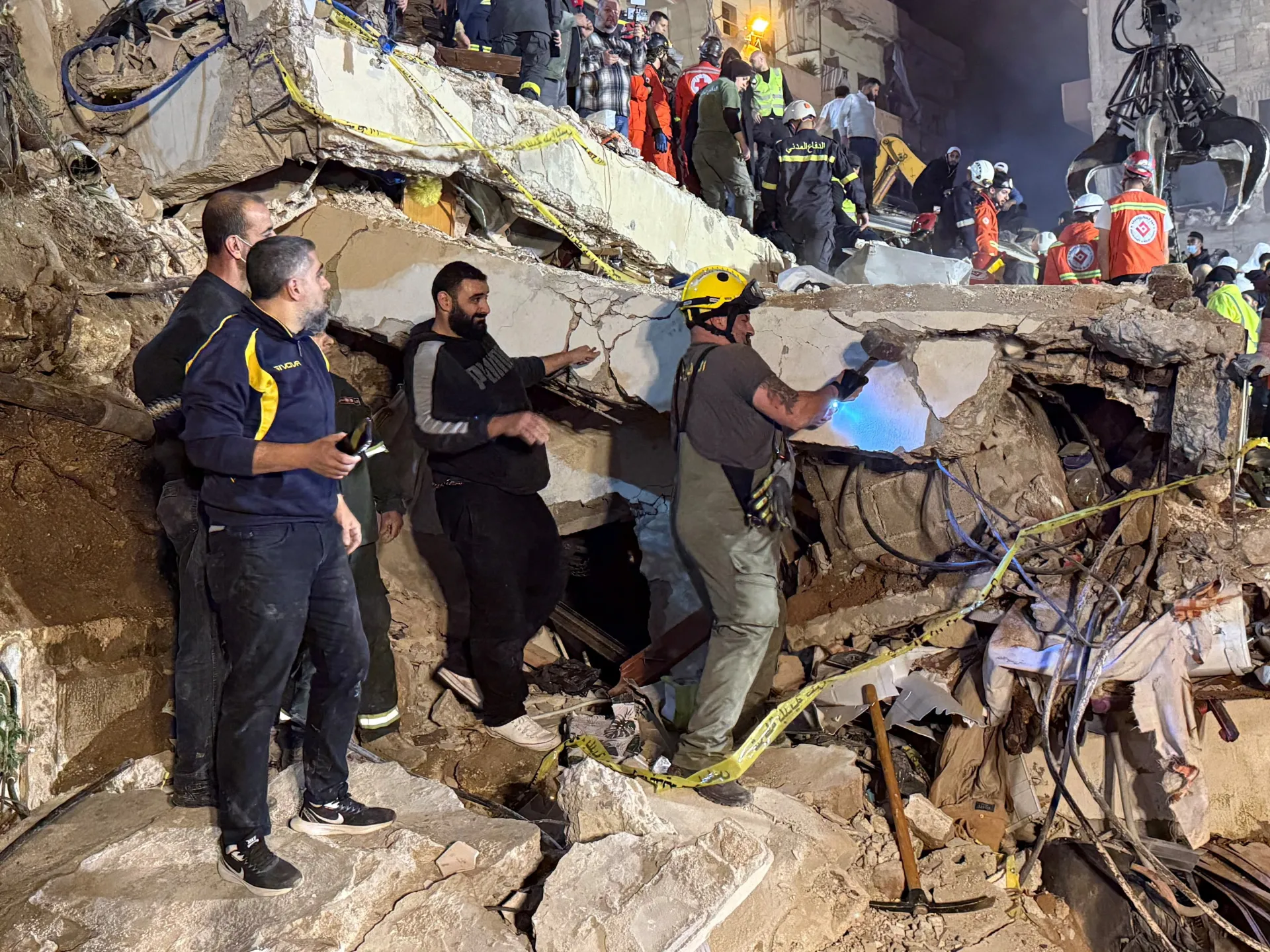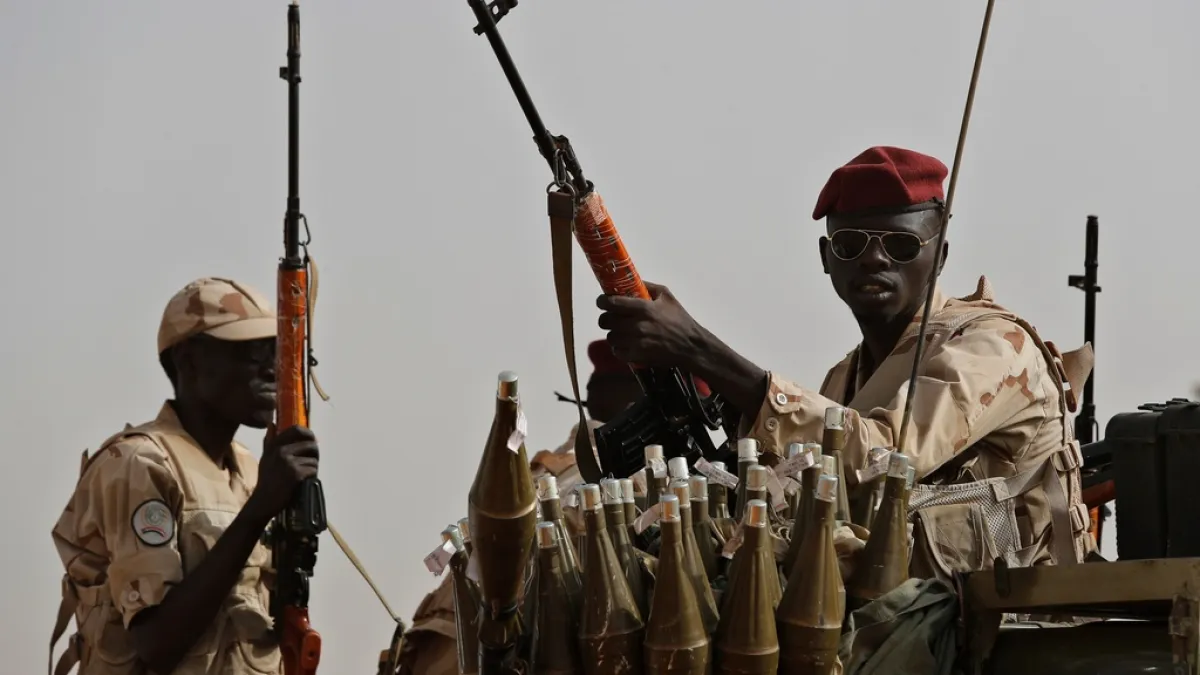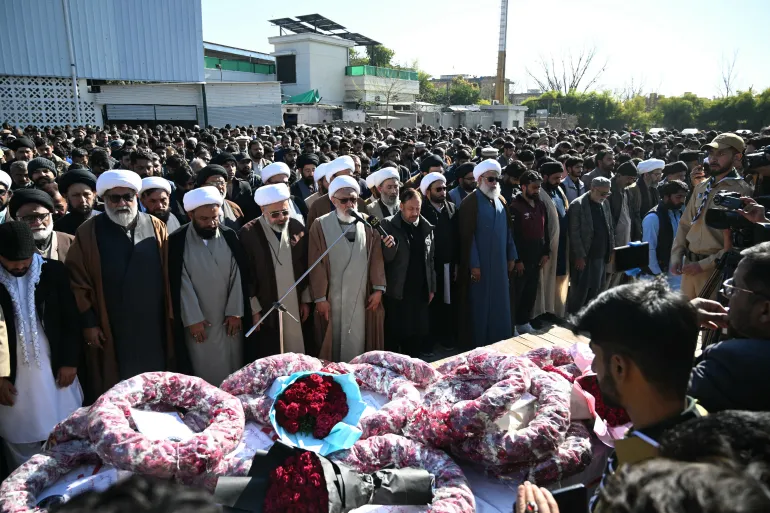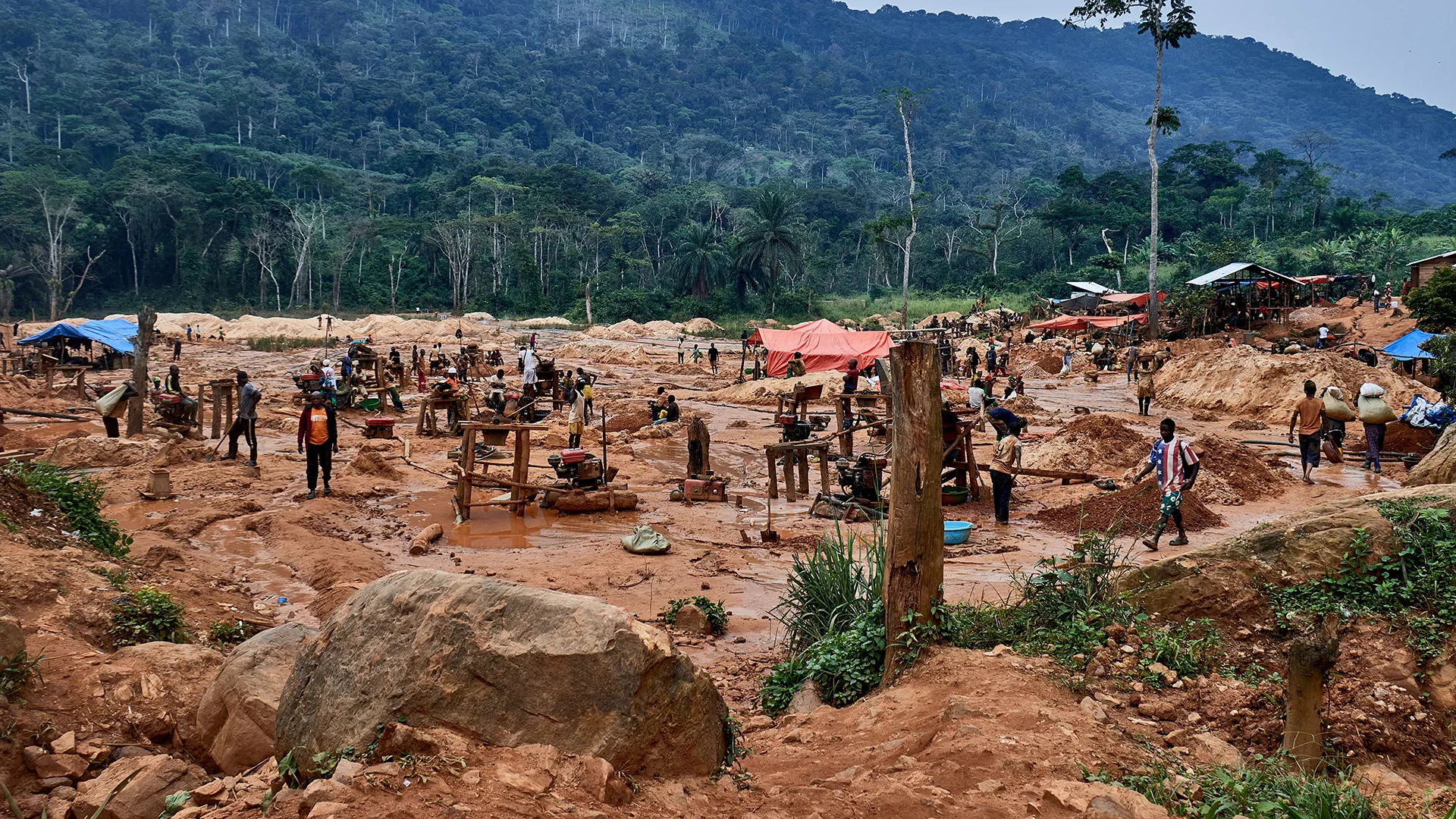Tripoli, Lebanon – Hossam Hazrouni points underneath a concrete staircase to the exposed foundation of the building where he lives.
“Inside, there, look,” the 65-year-old says. “The interior pillars are all broken. It’s covered in water. Everything inside is wet.”
Recommended Stories
list of 3 itemsend of list
A few metres away lies a pile of smashed concrete blocks and twisted metal. It is the rubble of a building that collapsed on February 8, killing at least 15 people.
In Tripoli, collapsed buildings are fast becoming common. This is the fourth building to collapse this winter alone. Today, hundreds of buildings are at risk of collapse due to a lethal combination of ageing infrastructure, unregulated construction, Lebanon’s 2019 economic crisis, the 2023 earthquake that fractured much of the local infrastructure’s foundation, and a relatively heavy rain season.
Locals like Hazrouni are afraid their buildings will be next.
“They told us that you should evacuate and you shouldn’t stay, but how are we supposed to leave when we are in a bad situation?” he asked, raising his palms to the sky. “Where are we supposed to go?”
Collapsing structures
In the 1950s, Tripoli, Lebanon’s second-largest city and the largest in the country’s north, was a hub for trade and shipping in the region. But in the intervening years, its status has fallen to become one of the poorest cities on the Mediterranean Sea.
It is also a city of massive disparity. Multiple billionaires live in Tripoli, including the former Prime Minister Najib Mikati and former Minister of Finance Mohammad Safadi, while about 45 percent of the city’s population lives in poverty, according to a 2024 World Bank report.
Over the years, most of Tripoli’s middle- and upper-class residents have moved to the southern edge of the city, leaving behind its impoverished classes to inhabit the decaying old city. Many of the poor know their concrete buildings are ageing and in poor condition, but have little means to fix them.
“The first problem is that the structures are old,” Fayssal al-Baccar, an engineer, told Al Jazeera from a restaurant in southern Tripoli. Al-Baccar is also the founder of the Tripoli Emergency Fund, a private initiative started in response to the collapsing building issue that has been fundraising to help the city.
“The lifespan of concrete is between 50 to 80 years,” al-Baccar explained, and in many of the buildings in central Tripoli, that lifespan is coming to an end. On a sheet of white paper with a blue pen, he drew a model of a building’s foundation.
“Through time, the pH [level] of the concrete will become more and more acidic,” he said, sketching lines around the base of his drawn wall. “Then it will corrode the steel – the steel will self-destruct – and the building will collapse.”
The issue has been exacerbated by a few incidents in particular. When a 2023 earthquake devastated northern Syria and southern Turkiye, it was widely felt in Tripoli as well. Local officials say that it damaged much of the infrastructural foundations of older buildings, many of which have had irregular or unregulated floors added to them, making them weaker. The area has also suffered from neglect and a lack of infrastructure for years, even before the 2019 economic and banking crisis.
Lastly, there is the issue of water damage. This year, Lebanon has received more rainfall than in the last couple of years. And in the days leading up to the collapsed building on February 8, it rained multiple times. “Water is infiltrating into the concrete and is also making the steel worse,” al-Baccar said.
That is why al-Baccar has recruited whom he described as some of the city’s “best and most successful” to help fill governmental gaps.
One of those people is Sarah al-Charif, the Tripoli Emergency Fund’s spokesperson and fundraising committee member. She is also the Lebanon director for Ruwwad Al Tanmeya, a nonprofit focused on youth and disenfranchised communities, and was appointed vice president of Tripoli’s Port Authority last year.
“You’re talking about areas where most, if not all, of the buildings are old and dilapidated, some of which are actually on the verge of collapse,” al-Charif said from her office at Ruwwad Al Tanmeya’s office in Bab al-Tabbaneh, less than a kilometre (0.62 miles) away from where the building collapsed on February 8.
“The fact that the problem is so big reflects decades of accumulated neglect by a state that hasn’t fulfilled its obligations towards this city,” she said.
Al-Charif said she doesn’t hold the current government – which took office a year ago – responsible, but that historically, “people who were in positions of power didn’t do anything, they weren’t fulfilling their duties”.
“There’s also a part that falls on the landlord, a part that falls on the tenant, and a part that falls on the merchants who are the builders. Maybe they’re using substandard materials,” she said. “So everyone has to take their share of the responsibility.”
Historical neglect
Standing on the street, Wissam Kafrouni, 70, points to the top floor of a building just a few doors down from the structure that collapsed on February 8. A crack runs zig-zagging down the building’s side, in the pattern of descending stairs. His nephew rents the top-floor apartment, he says, but the landlord is claiming that repairs are the responsibility of the tenant.
Locals in this neighbourhood say that many officials have visited the site in recent days, including Prime Minister Nawaf Salam. They also say that they’ve been told for years that the local municipality has plans to fix the infrastructure, but that little has come about from it.
The local government has known about the issue for years, but until now, little has been done. Deputy Mayor Khaled Kabbara is part of a new municipal government elected in 2025.
“The issue of cracked buildings is a very old issue in the city of Tripoli, and unfortunately, it has not been dealt with in previous periods,” he told Al Jazeera from Tripoli’s municipality headquarters. But this new municipal government that was elected in 2025, he said, has “raised its voice”.
Kabbara also said that Tripoli has been historically ignored by Beirut “since independence” in the 1940s, but that the current government was working with the local government to find solutions.
“Honestly, this is the first time that we feel that someone is listening and there is someone who is working with us,” he said.
A group of engineers are currently inspecting buildings around the city to decide if damaged buildings can be repaired or must be evacuated and demolished. Evacuation warnings have been issued for 114 buildings, though that number is expected to rise substantially.
Families that evacuate should receive a one-year shelter allowance to secure alternative housing. Religious institutions have opened their doors to evacuees, while Turkiye has also promised to donate about 100 prefabricated houses.
A call centre has also been set up for residents to report suspected issues with their buildings. The hotline has so far received reports on approximately 650 different buildings, Kabbara said.
One of the buildings previously reported to the call centre was the building that collapsed on February 8. Locals had heard a creaking sound coming from the building.
Kabbara acknowledged that the report was received and that the residents were afraid. However, he said, the engineers had not inspected it before it collapsed because nothing in the report indicated it needed an urgent inspection.
What comes next?
Back in Bab al-Tabbaneh, numerous locals expressed frustration and fear. They said many officials and associations have visited the site, but few have delivered on promises to help them.
“We’ve been told there is a plan to fix the infrastructure since the Siniora government,” Samir Rajab, 56, said, referring to Fouad Siniora, the prime minister of Lebanon from 2005 to 2009. “But nothing happens.”
Next to the destroyed building site, Mustapha al-Abed, 54, repaired a broken washing machine out of a small workshop. He said his work was not very fruitful lately, as poverty forced many in this area with broken appliances to wash their laundry by hand.
He looked over at the site where the building had gone down just days earlier. “The problem is not here any more. These people are already dead,” he said. He then pointed across the street to a bustling neighbourhood, where people were doing their Ramadan shopping.
“The problem is all the other buildings.”







